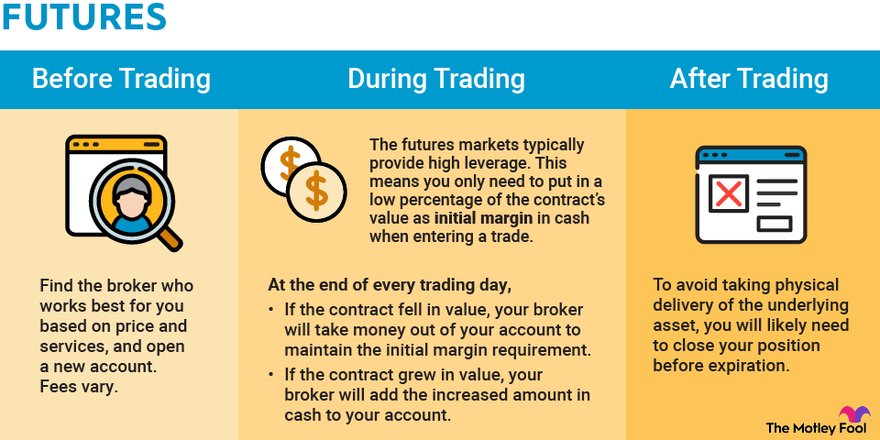The Role of Futures Trading in Today's Market
The Role of Futures Trading in Today's Market
Blog Article
Futures trading can frequently appear to be a complex and scary economic venture. However, when approached logically, it can be a powerful instrument for achieving long-term financial goals. futures trading discount, its potential benefits, and how it may be leveraged successfully for sustainable gains.
What's Futures Trading?
At its primary, futures trading involves contracts to buy or sell a specific asset at a predetermined price on a future date. These agreements are standardized and exchanged on controlled exchanges. Common futures markets include commodities like primitive fat, silver, and agricultural products, as well as financial instruments like stock indices and currencies.
Futures agreements are unique simply because they allow traders to speculate on the purchase price movement of assets without really possessing them. This starts up possibilities for income in equally climbing and falling markets.
For example, if your trader believes elementary gas prices increases, they could enter a long place by investing in a futures contract. Alternatively, should they predict prices can drop, they are able to take a small position by selling a contract.

Advantages of Futures Trading for Long-Term Gets
1. Power and Money Efficiency
One of many critical benefits of futures trading is its large leverage. With a small initial profit deposit, traders may get a handle on a much bigger position size. That efficient utilization of money enables investors to potentially increase returns. Nevertheless, warning is necessary, as influence also magnifies losses.
2. Diversification Opportunities
Futures markets give use of a wide range of assets, from commodities to economic instruments. This diversified exposure might help investors hedge against risks in different regions of their portfolios. Diversification is an essential strategy for lowering overall collection volatility over the long term.
3. Hedging Against Industry Risks
Futures are outstanding resources for hedging. Companies frequently utilize them to guard against unfavorable market changes. As an example, a farmer would use futures contracts to lock in purchase charges for crops, ensuring stable money despite varying market conditions. Equally, long-term investors can use futures to stability chance inside their portfolios throughout uncertain economic periods.
4. Liquidity and Visibility
Futures markets are known for their high liquidity. That ensures that traders can very quickly enter and quit roles with minimal value impact. Additionally, futures contracts are dealt on governed exchanges, providing openness and paid off counterparty risks.

Methods for Long-Term Success in Futures Trading
While futures trading offers significant options, effective long-term trading requires control and strategy:
Understand Market Styles: Stay current on industry movements and financial indicators that impact advantage prices.
Set Obvious Targets: Establish your financial objectives and create a disciplined trading approach.
Manage Risks: Employ stop-loss purchases and diversify your profile to mitigate risks.
Constant Learning: Futures trading requires a learning curve. Keeping informed and adapting techniques as time passes is crucial.
Unlocking Long-Term Increases with Futures
Futures trading is not merely for short-term speculators. When used thoughtfully, it could be a robust software for achieving long-term economic gains. By leveraging the unique top features of futures agreements, such as for example diversification, leveraging money, and hedging chance, investors can construct sustainable strategies for wealth growth.
Report this page